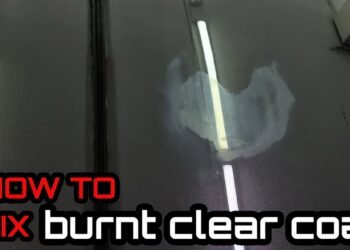When it comes to your vehicle’s performance, every detail counts—including the size of your fuel filter. You might wonder, “Does fuel filter size really matter?” The answer is a clear yes.
Using the wrong size can lead to fuel flow problems, damage to your fuel pump, or poor protection for your engine’s delicate parts. But how do you know what size is right for your vehicle? And what role does the filter’s micron rating play in keeping your engine safe?
You’ll discover why choosing the correct fuel filter size is crucial, how it affects your engine’s health, and simple steps you can take to pick the perfect filter for your ride. Keep reading to protect your vehicle and avoid costly repairs down the road.
Fuel Filter Size Basics
Understanding the basics of fuel filter size helps you choose the right filter for your vehicle. Size impacts how well the filter works and how long it lasts. The correct size ensures proper fuel flow and protects the engine from dirt and debris.
Choosing the wrong size can cause problems like fuel starvation or damage to the fuel pump. Knowing the key aspects of filter size makes it easier to pick the right one and keep your engine running smoothly.
What Fuel Filter Size Means
Fuel filter size refers to two main factors: the physical dimensions and the filtration capability. The filter must fit your vehicle’s fuel system properly. It also needs to filter out particles small enough to protect the engine parts.
The size includes the filter’s diameter, length, and the size of the inlet and outlet ports. These affect how much fuel flows through the filter and how fast it can filter dirt. A proper size ensures the fuel pump works without strain.
Common Size Variations
Fuel filters come in various sizes to fit different vehicles and engines. Small engines often use compact filters with smaller ports. Larger engines require bigger filters to handle higher fuel flow.
Filters also differ in micron ratings. This rating shows the smallest particle size the filter can block. Common micron sizes range from 10 to 30 microns. Lower micron filters trap smaller particles but may clog faster.
The surface area inside the filter also varies. A larger surface area means more dirt can be held before the filter needs changing. This helps the filter last longer and keeps fuel flow steady.

Credit: www.mainstreetmower.com
Micron Rating Importance
The micron rating of a fuel filter plays a crucial role in keeping your engine clean and running smoothly. It tells you the size of the smallest particles the filter can catch. Choosing the right micron rating helps protect your engine from dirt and debris that can cause damage. Understanding this rating can help you select the best filter for your vehicle’s needs.
Particle Filtration Levels
The micron rating shows how small the particles the filter blocks are. A lower micron number means the filter catches finer particles. For example, a 10-micron filter traps smaller dirt than a 30-micron filter. This helps keep fuel cleaner before it reaches the engine parts.
Different engines require different filtration levels. High-performance engines may need filters with lower micron ratings. This ensures that tiny particles do not clog the fuel injectors or other critical parts.
Protecting Engine Components
Fuel injectors and pumps are sensitive to dirt and debris. Small particles can cause wear or blockages. Using a filter with the right micron rating helps stop these problems. Clean fuel keeps engine parts working longer and better.
A good micron rating also prevents costly repairs. Engines running on clean fuel face fewer breakdowns. This saves time and money over the life of your vehicle.
Risks Of Low Micron Filters
Filters with very low micron ratings trap more particles but can clog faster. This may reduce fuel flow to the engine. Reduced flow can cause fuel starvation and damage the fuel pump.
Choosing too fine a filter may lead to frequent replacements. It can also increase stress on your fuel system. Balance is key between filtration and fuel flow for best engine health.
Flow Capacity And Surface Area
The flow capacity and surface area of a fuel filter play a key role in its performance. Flow capacity means how much fuel the filter can let pass through without slowing down the engine. Surface area refers to the size of the filter media that traps dirt and debris. Both factors affect fuel delivery and engine health.
Matching Flow To Fuel Pump
The fuel filter must handle the fuel pump’s flow rate. A filter too small can restrict fuel, causing the engine to run lean. This puts stress on the pump and engine parts. Matching filter flow capacity to the pump keeps fuel moving smoothly and prevents damage.
Effects Of Small Surface Area
A small surface area clogs quickly. Dirt builds up faster, reducing fuel flow. This can cause hesitation, poor performance, and even engine stalling. Frequent filter changes become necessary. Small filters may protect the engine but need more maintenance.
Benefits Of Larger Filters
Larger filters have more surface area to catch dirt. They last longer before clogging and keep fuel flow steady. This reduces wear on the fuel pump and helps maintain engine power. Bigger filters offer better protection and fewer replacements over time.

Credit: www.ebay.com
Risks Of Incorrect Filter Size
Using the wrong size fuel filter carries serious risks. An incorrect filter size can disrupt fuel flow. It may cause damage to your vehicle’s fuel system. Engine performance can also suffer. Understanding these risks helps you keep your engine safe and running well.
Fuel Starvation Issues
A filter too small restricts fuel flow. This limits the fuel reaching the engine. The engine may stall or run poorly. Fuel starvation causes rough idling and loss of power. It can damage engine parts over time. Proper fuel flow is critical for smooth operation.
Fuel Pump Damage
A filter that is too fine or too small strains the fuel pump. The pump works harder to push fuel through. This extra effort can cause overheating and wear. Over time, the pump may fail completely. Using the correct filter size reduces pump stress and extends its life.
Reduced Engine Protection
A filter that is too large may let harmful particles pass through. Poor filtration allows dirt and debris to enter the engine. This causes injector clogging and engine damage. Choosing the right micron rating ensures better protection. A proper filter keeps the fuel system clean and reliable.
Choosing The Right Fuel Filter
Choosing the right fuel filter is crucial for your vehicle’s performance and longevity. A fuel filter that fits well ensures clean fuel reaches the engine. It also helps avoid damage to the fuel pump and injectors. Selecting the correct size and type protects your engine from harmful debris and contaminants.
Consult Vehicle Manual
Your vehicle manual provides exact fuel filter specifications. It lists the recommended filter size and micron rating. Using the manual helps you avoid buying an incorrect filter. Follow the manufacturer’s advice to keep your fuel system safe. Manuals also guide on the proper filter type for your engine model.
Balancing Filtration And Flow
Fuel filters must block tiny particles while allowing enough fuel flow. A filter with too fine a mesh may clog quickly. This causes fuel starvation and damages the pump. A filter with too large pores lets harmful debris pass. Choose a filter with the right micron rating for your needs. Balance is key to protect the engine and keep fuel flowing smoothly.
Filter Placement Strategies
Proper filter placement improves its efficiency and lifespan. Place filters close to the fuel tank to catch large debris early. Some vehicles also use a secondary filter near the engine. This second filter cleans finer particles before fuel injection. Secure placement prevents vibrations and leaks. Good positioning ensures the filter works well and lasts longer.
Maintenance And Longevity
Proper maintenance extends the life of your fuel filter and engine. Choosing the right size affects how often you need to replace the filter. It also impacts the engine’s overall health and performance. Regular checks keep fuel flowing smoothly and prevent costly repairs.
When To Replace Filters
Replace fuel filters based on mileage or time. Common recommendations suggest every 20,000 to 40,000 miles. Check your vehicle’s manual for exact intervals. Regular replacement prevents dirt buildup that can harm the engine. Delaying filter changes reduces engine efficiency and can cause breakdowns.
Signs Of Clogging
Watch for slow engine start or poor acceleration. Engine misfires or rough idling also hint at clogging. A drop in fuel efficiency may signal a clogged filter. Fuel pump noise or stalling are warning signs too. Early detection helps avoid serious engine damage.
Impact Of Bigger Filters On Lifespan
Bigger fuel filters hold more dirt and last longer. They offer a larger surface area for filtration. This means they clog less quickly and extend maintenance intervals. Still, bigger filters must fit properly to avoid fuel flow issues. Always confirm compatibility with your vehicle’s system. Using the right size supports a longer engine lifespan.
Performance Boost Tips
Enhancing your vehicle’s performance requires attention to the fuel filter’s role. The fuel filter size directly affects how well your engine runs. Choosing the right size and type can improve fuel flow and engine protection. Below are key tips to boost performance safely and effectively.
Using Larger Filters Safely
Using a larger fuel filter can increase filtration capacity and last longer. Larger filters hold more debris before clogging. This helps maintain steady fuel flow over time.
Check your vehicle’s manual before upgrading. A filter too large may cause fitment issues or fuel flow problems. Always ensure compatibility with your fuel system. Proper installation prevents leaks and pressure drops.
Optimizing Micron Ratings
The micron rating shows the size of particles the filter blocks. Lower micron filters catch smaller dirt but may clog faster. Higher micron filters allow better fuel flow but trap fewer particles.
Choose a micron rating that balances protection and flow. For most engines, a rating between 10 to 30 microns works well. This keeps fuel clean without restricting flow.
Avoiding Flow Restrictions
Fuel flow is vital for engine performance. A filter that restricts flow lowers power and efficiency. Filters with a larger surface area reduce pressure drops.
Use filters designed for your engine’s fuel demand. Avoid cheap filters with small ports or thin media. Regular replacement also prevents clogging and maintains smooth fuel delivery.

Credit: www.speedwaymotors.com
Frequently Asked Questions
Does It Matter What Size Fuel Filter I Use?
Yes, fuel filter size matters. Use the correct size to ensure proper fuel flow and protect the engine. Too small restricts flow; too large may not fit or filter properly. Always follow your vehicle’s manual for the recommended size and micron rating.
What Happens If The Fuel Filter Is Too Big?
A fuel filter that’s too big may cause fuel flow issues despite longer debris capacity. It can disrupt fuel pressure and system balance. Always use the correct size to ensure proper filtration and avoid fuel pump damage or engine performance problems.
Should I Use A 40 Or 100 Micron Fuel Filter?
Choose a fuel filter based on your vehicle’s manual. A 40-micron filter blocks smaller particles but clogs faster. A 100-micron filter allows better flow and lasts longer but filters larger particles. Balance filtration needs with fuel flow to protect your engine and pump effectively.
Which Is Finer, 10 Or 20 Micron?
A 10-micron filter is finer than a 20-micron filter. It blocks smaller particles for better filtration.
Does Fuel Filter Size Affect Engine Performance?
Yes, the correct size ensures proper fuel flow and protects the engine from dirt and debris.
Conclusion
Choosing the right fuel filter size keeps your engine running smoothly. A properly sized filter prevents fuel flow problems and protects vital parts. Filters with suitable micron ratings block harmful particles without clogging too fast. Bigger filters often last longer but must fit your vehicle’s fuel system.
Always follow your vehicle’s manual for the best match. The right fuel filter size helps avoid costly repairs and keeps your engine healthy. Don’t overlook this simple but important detail for reliable vehicle performance.

















